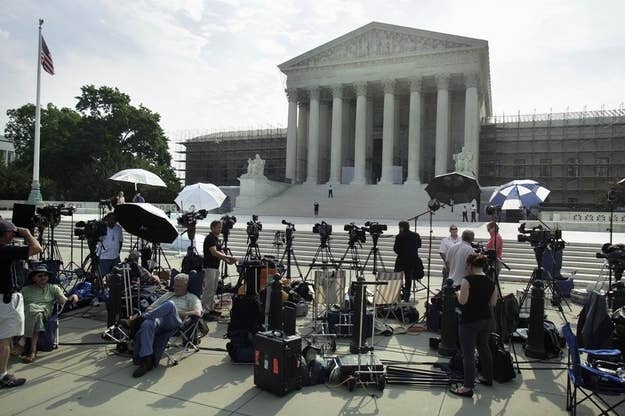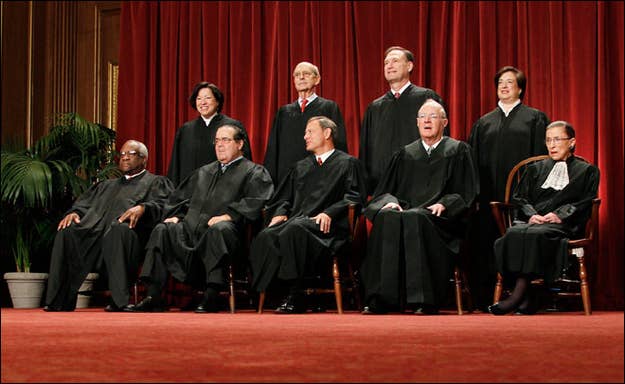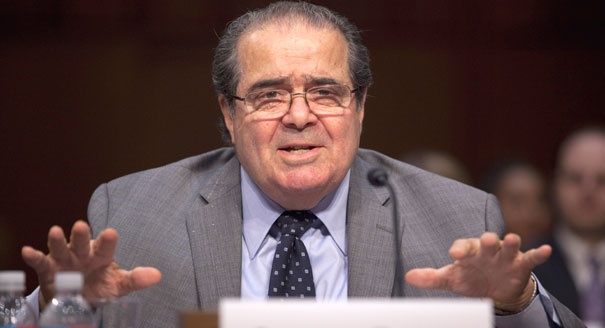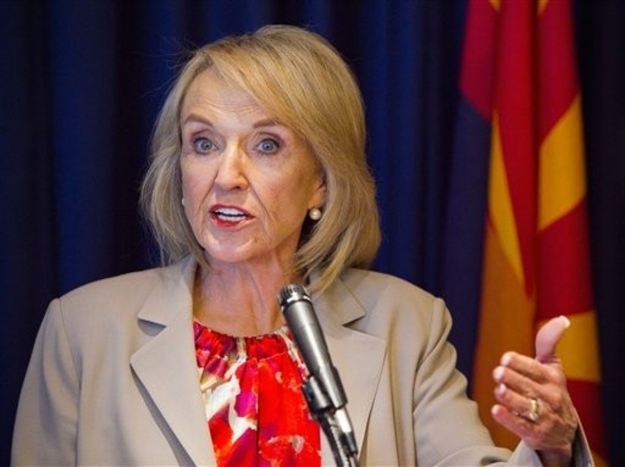1. The court upheld the controversial "show me your papers" provision.

The justices held that it is “improper for the lower courts to enjoin Section 2(B), which requires police officers to check the legal status of anyone arrested for any crime before they can be released.” That's the "show me your papers" provision of SB 1070, which requires police officers to ask a person they've stopped for their papers, if they have reasonable suspicion that the person is in the state illegally.
"The mandatory nature of the status checks does not interfere with the federal immigration scheme," the justices write in their opinion.
They add that "It is not clear at this stage and on this record that §2(B), in practice, will require state officers to delay the release of detainees for no reason other than to verify their immigration status." If that was the case, it "would raise constitutional concerns."
However, the court didn't exactly "uphold" the 2(B) provision — they ruled that it was too early for lower courts to block it, and the possibility is open that its constitutionality could be decided again later on.
2. But it struck down five parts of the law.

The court decided that the following parts of the law are not in effect: allowing authorities to arrest individuals without a warrant if there is probable cause to believe they did something that makes them eligible for deportation; making it a crime for illegal immigrants to apply for work or perform work; making it illegal for day laborers to block traffic while waiting to be picked up to go to work; allowing law enforcement to detain people indefinitely while they check their papers; making it illegal for aliens to fail to carry an "alien registration document."
3. Justice Scalia disagreed that the federal government should decide the states' immigration policy.

The ruling stresses that the federal government, and not the states, is ultimately responsible for deciding on immigration and foreign policy.
"The federal power to determine immigration policy is well settled," Justice Anthony Kennedy writes in the majority opinion. "Immigration policy can affect trade, invest
ment, tourism, and diplomatic relations for the entire Nation, as well as the perceptions and expectations of aliens in this country who seek the full protection of its laws."
What this means: states who, like Arizona, try to pull their immigration laws away from what's considered the norm would have a hard time keeping those policies intact in the face of legal challenges.
Justice Antonin Scalia wrote the dissenting opinion, arguing that "As a sovereign, Arizona has the inherent power to exclude persons from its territory, subject only to those limitations expressed in the Constitution or constitutionally imposed by Congress." He reportedly said from the bench that the majority opinion in the case "boggles the mind."
4. Chief Justice Roberts joined with the liberal justices in the majority opinion.

The vote split 5-3 with Justices Kennedy, Breyer, Ginsburg, Sotomayor, and Roberts joining in the majority opinion, and Scalia, Thomas and Alito concurring in part and dissenting in part. Justice Kagan recused.
The vote challenges the perception of an activist Roberts court with only 5-4 votes on party lines.
Given that Justice Kennedy wrote the majority opinion in the Arizona case, Roberts is thought to be likely to write the health care decision on Thursday. Via SCOTUSblog, "Health care is almost certainly being written by CJ Roberts, perhaps in part with Justice Kennedy."
5. The decision is being interpreted as a win on both sides.

Arizona Governor Jan Brewer, one of the biggest boosters of SB 1070, called the decision a "victory for the rule of law" today in a press release.
“It is also a victory for the 10th Amendment and all Americans who believe in the inherent right and responsibility of states to defend their citizens. After more than two years of legal challenges, the heart of SB 1070 can now be implemented in accordance with the U.S. Constitution.”
Elsewhere, the decision is seen as a win for the Obama Administration.
"On net, the #SB1070 decision is a significant win for the Obama Administration," reported SCOTUSblog. "It got almost everything it wanted." Most parts of the law were rejected, with only one really controversial provision remaining ("check your papers").
